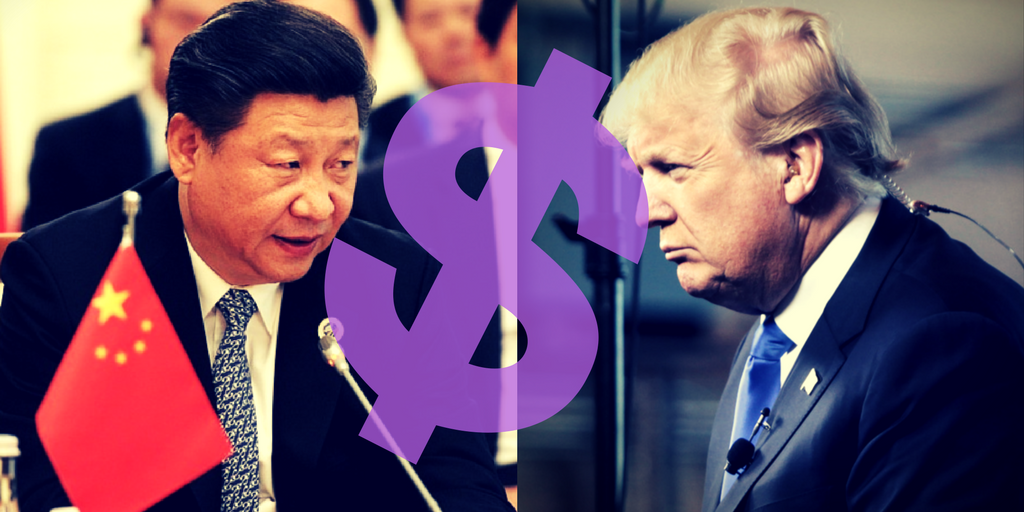China took another major step towards the inevitable end of petrodollar dominance and the further internationalization of the yuan. Via this report:
‘China is expected shortly to launch a crude oil futures contract priced in yuan and convertible into gold in what analysts say could be a game-changer for the industry.
The contract could become the most important Asia-based crude oil benchmark, given that China is the world’s biggest oil importer. Crude oil is usually priced in relation to Brent or West Texas Intermediate futures, both denominated in U.S. dollars.
China’s move will allow exporters such as Russia and Iran to circumvent U.S. sanctions by trading in yuan. To further entice trade, China says the yuan will be fully convertible into gold on exchanges in Shanghai and Hong Kong.’
Critical to this move is the decision by Saudi Arabia:
‘If Saudi Arabia accepts yuan settlement for oil, Gave said, “this would go down like a lead balloon in Washington, where the U.S. Treasury would see this as a threat to the dollar’s hegemony… and it is unlikely the U.S. would continue to approve modern weapon sales to Saudi and the embedded protection of the House of Saud [the kingdom’s ruling family] that comes with them.”
The alternative for Saudi Arabia is equally unappetizing. “Getting boxed out of the Chinese market will increasingly mean having to dump excess oil inventories on the global stage, thereby ensuring a sustained low price for oil,” said Gave.’
If Saudi Arabia feels that China can act as an effective shield against its Iranian adversary, it most likely will forgo this ‘embedded protection’ from the US and acquiesce to Chinese demands. It may feel greater pressure as Qatar recently restored diplomatic relations with Iran thereby strengthening the Iran-Turkey-Qatar alliance.
Chinese Relations with Pakistan / Afghanistan
China has made inroads with non-oil producing nations in the region. Primarily, it has a growing economic relationship with Pakistan. While challenges of political and economic isolation exist, the China-Pakistan Economic Corridor commonly known as CPEC has grown larger than its initially planned $46 billion investment plan announced in 2015. The investment is potentially crucial to China’s Belt and Road Initiative as it could provide a link from China through Europe and Africa. In addition, China has aggressively pushed development of a railway linking China and Afghanistan that is aimed to cut travel time between the two nations from six months to two weeks. Although the project has run into problems, the importance of this railway cannot be understated. Back in September, Chinese Ambassador to Afghanistan Yao Jing went so far to say, “Without Afghan connectivity, there is no way to connect China with the rest of the world.”
Gold Moves
Curiously, on August 21, US Treasury secretary Steve Mnuchin became the first government official to visit Fort Knox in 43 years. Just prior to his visit, he said to an audience (hopefully in humor) ‘I assume the gold is still there…It would really be quite a movie if we walked in and there was no gold.” After his visit, he tweeted ‘Glad gold is safe!’. Unfortunately, it would have been more reassuring to some if there had been a full audit (i.e. serial numbers per each gold bar).
In addition, Germany recently announced that its central bank completed the transfer of $27.9 billion worth of gold bars back to Frankfurt three years ahead of expectations. The gold was held by the Federal Reserve in New York and France’s central bank to hedge against political and currency risks.
China’s Strike Against Cryptocurrency Threat
Yesterday, China effectively banned all organizations and individuals from raising funds through ICO activities. Also, all banks and financial institutions in China will not be able do any business related to ICO trading. Cryptocurrency prices dropped sharply as a result. While intended to protect investors from fraud, the decision may have been timed to strike back at the US – Japan alliance to transition to a world reserve currency led by Bitcoin. It would not be in China’s interest to allow this transition to occur smoothly (if at all). It is unclear how committed China is to blockchain technology as its primary goal is to prevent any financial instability in its markets as it attempts to undermine US hegemony.
US – China Comparison
In spite of the numerous deficiencies of Chinese government behavior (especially towards its own people), its acumen in establishing relationships throughout the Middle East without using military force can be characterized as highly impressive. Contrast that with the US and its consistent failed policy of invasion in the name of ‘fighting terrorists’. Sixteen years of US occupation has left Afghanistan as a failed state where the Taliban control roughly 40% of the country and opium production has risen from 185 tons in 2001 to 3,300 tons in 2015 despite the US spending $8.4 billion in counter narcotics programs. Equally troubling is President Trump’s recent decision to break his campaign promise and raise troop levels in Afghanistan. His deference to the military industrial complex has garnered meaningless praise from many of the same people who have supported these failed policies.
As Democrats and their compliant media hyped the fake Russian hacking narrative (updated to Russian collusion), Russia has only become more unified with China to counter US power. While China has economic issues of debt and ghost cities, the US is gripped in a state of chaos as it has:
- An illusion of a healthy economy (due to central bank manipulation) and in contrast to the reality of a failing economy with fake economic data published by a corrupt government (Even David Stockman, former Reagan administration budget director, asks ‘How can there be “full-employment” at 4.4% unemployment claimed by the BLS and the Fed’s monetary central planners, when there are 103 million adults without jobs?’)
- Dire circumstances for many as anywhere from 49% of Americans to 78% of all American full-time workers live paycheck to paycheck
- A likely cost of $150 to $180 billion from Hurricane Harvey that will be added to a national debt of approximately $20 trillion
- Death threats made by ‘deep state’ members against its president on a regular basis
- An Attorney General that is too scared or compromised to follow the rule of law and proceed with justice and who has no problem instituting a widely criticized a policy that abuses its citizens
Conclusion
The repercussions of a Saudi move to side with China should not come as any surprise but will affect everyone in the world. For years, Dr. Ron Paul has warned about the end of the petrodollar system causing the US dollar to lose its world’s reserve currency status and to subsequently collapse. As a result, Russia would immediately demand the end of a US presence in Syria. This could be followed by the withdrawal of US troops from Iraq, Turkey and other countries. In the midst of great uncertainty, some may use the event to their advantage. The Kurdish population could feel emboldened and seize the opportunity to declare an independent state. In this case, Israel would be the beneficiary as a new Kurdish state would counter the looming threat from Iran.
Originally Published on News with Chai.






